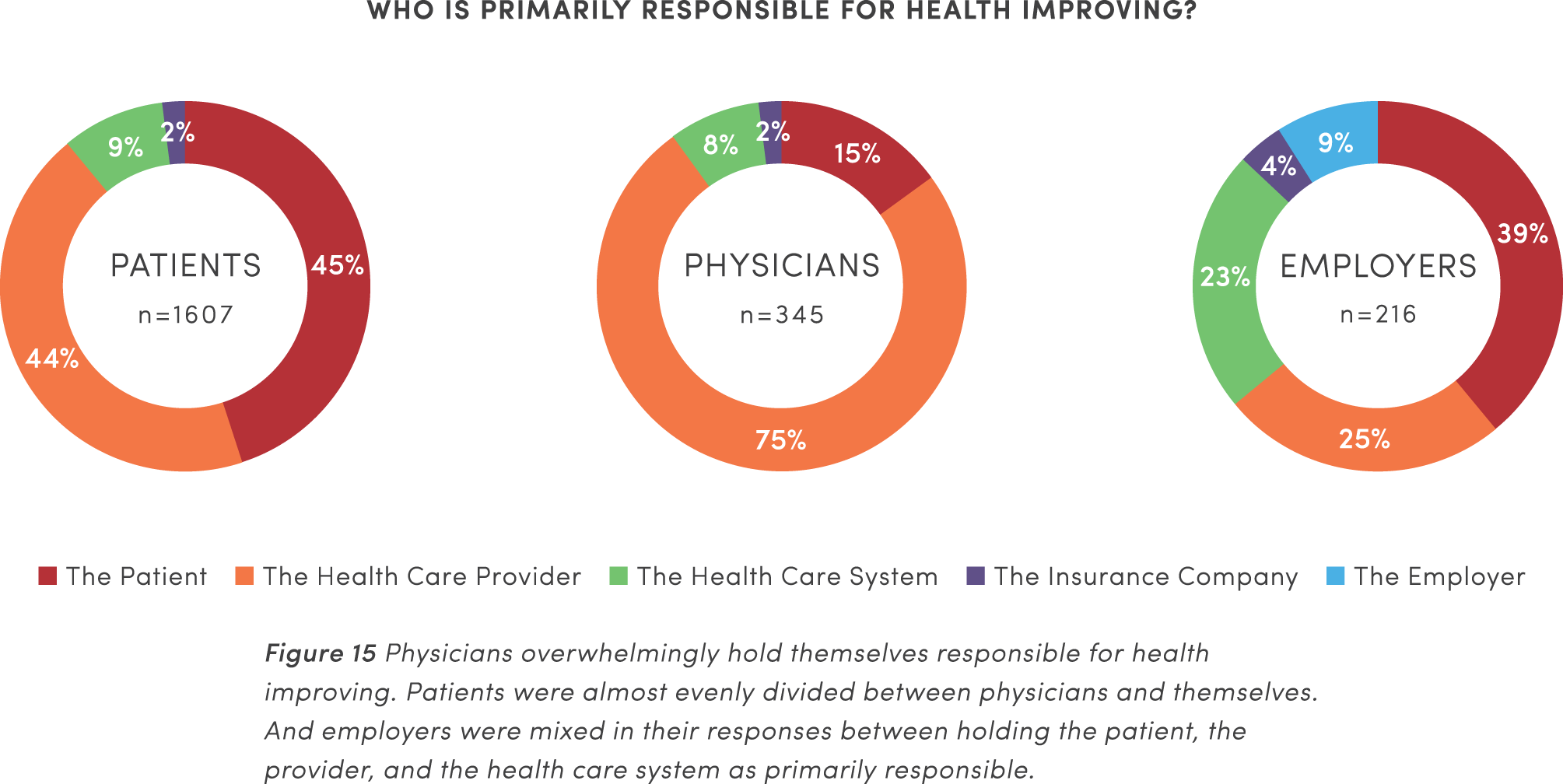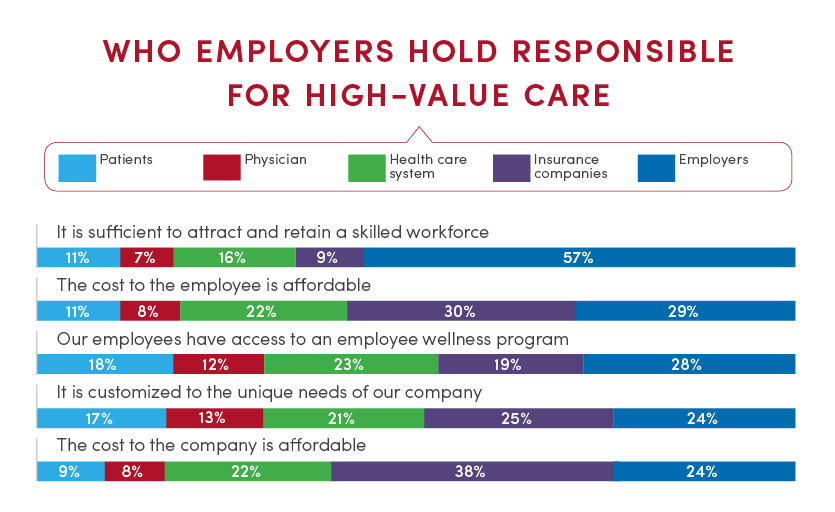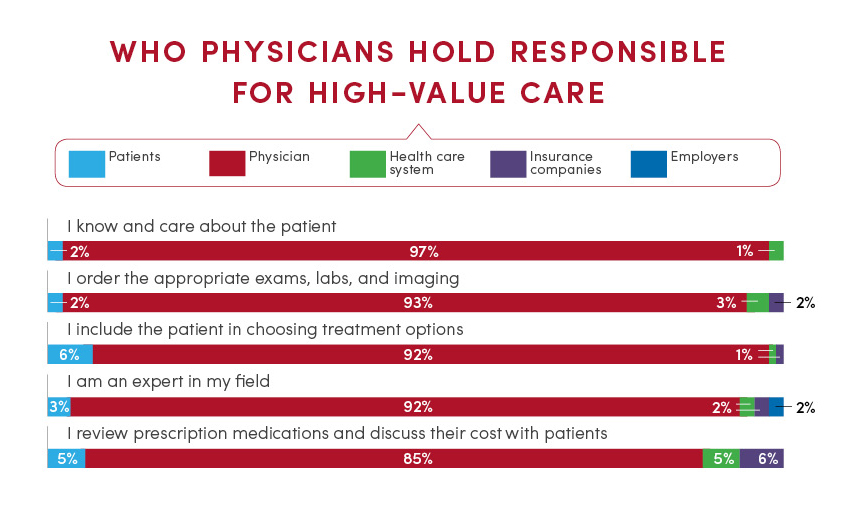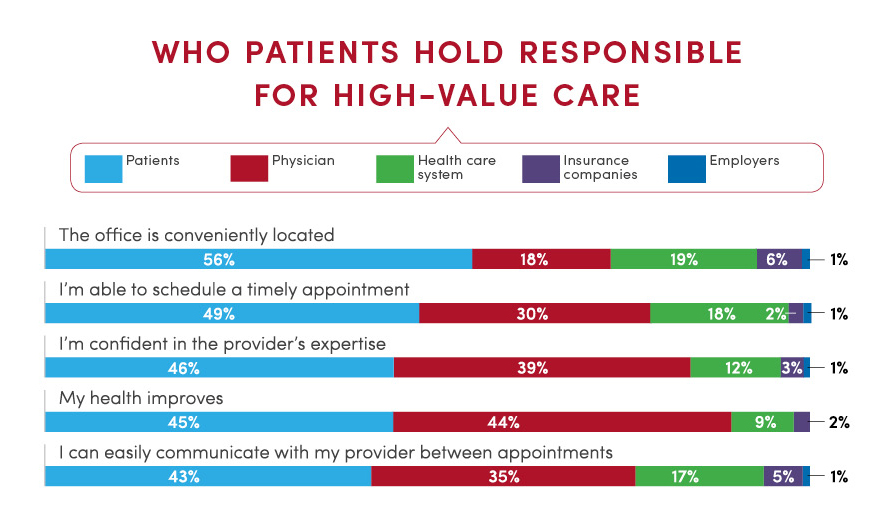Once we identified what people valued most in health care, we then asked survey respondents who they thought was primarily responsible for achieving their priorities: the patient, the health care provider, the health care system, the insurer, or employer who provide benefits.
The results showed significant misalignment around responsibility. Physicians held themselves overwhelmingly responsible for achieving almost all aspects of high-value care, except for statements related to cost and affordability. Patients split responsibility between holding themselves and the providers responsible for most statements. Neither patients nor physicians collectively assigned responsibility to the employer, the insurer or the health system across the statements. The employers, however, held themselves, the insurer and the health system much more responsible.
One example of a finding that illustrates this misalignment is that when asked who was primarily responsible for a patient’s “health improving.”
- Physicians overwhelmingly assigned themselves responsibility (75%)
- Patients assigned responsibility equally to themselves (45%) and physicians (44%)
- Employers split widely in assigning responsibility: patient (39%), physician (25%), health system (23%), the insurer (4%), and themselves (9%)
If achieving high-value care requires shared accountability, then the perception of responsibility is ripe for conversation. Physicians will have to lessen their personal burden for ensuring high-value care and shift their thinking to include all stakeholders—system, payers, employers, patients, and providers— jointly responsible. At the same time, stakeholders need to better understand the provider’s perspective and engage in more conversations around individual responsibility and shared accountability for delivering high-value health care.

Who Employers hold responsible for providing a high-value medical benefits plan
After employers chose their top five value statements about what best reflects what their organization values
most in a medical benefits plan, we asked them: Who is primarily responsible for ensuring that happens? Here’s
who they hold responsible:
Who physicians hold responsible for high-value care
After physicians chose their top five value statements, we asked them: Who is primarily responsible for ensuring
those things happen? You can see by the sea of red below that physicians hold themselves overwhelmingly
responsible.
Who patients hold responsible for high-value care
After patients chose their top five value statements, we asked them: Who is primarily responsible for ensuring
those things happen? Overall, patients hold themselves much more responsible than physicians do.



